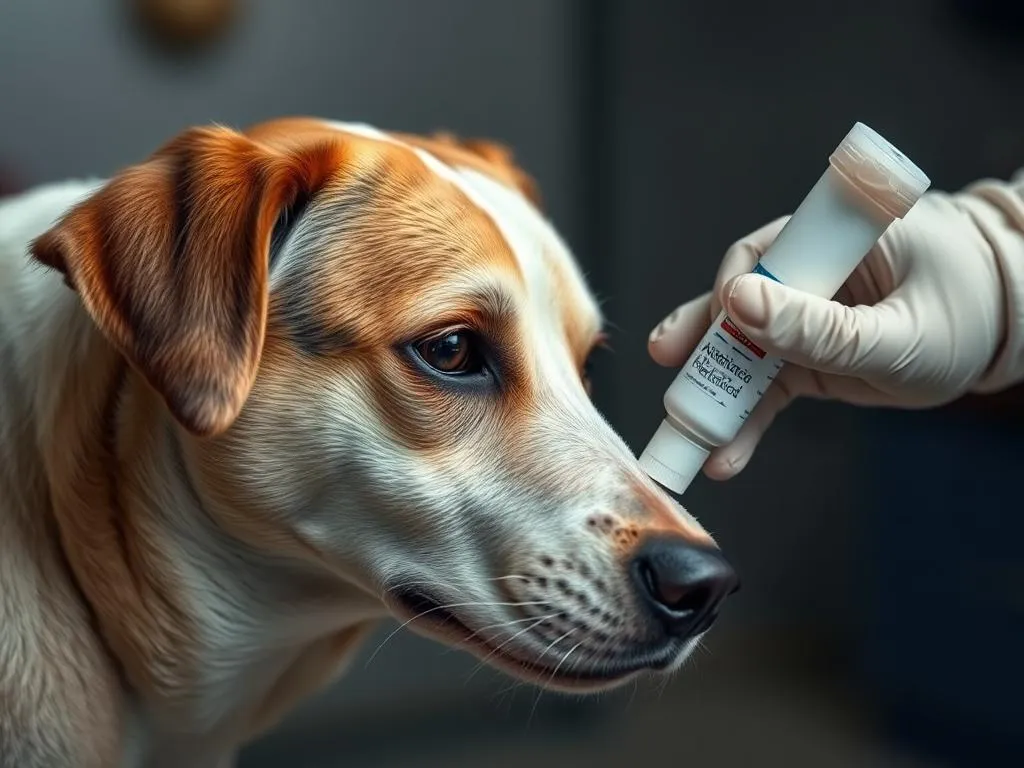
Introduction
Ensuring the health and well-being of our canine companions is a crucial aspect of responsible pet ownership. Proper dog health care not only enhances their quality of life but also prevents common health issues that can arise over time. As loving pet owners, we must be vigilant about recognizing signs of common ailments and responding appropriately. This article aims to address the question, “Can I put antibiotic ointment on dogs?”, while emphasizing the importance of consulting a veterinarian for any pet care needs.
Understanding Dog Health Care
What is Dog Health Care?
Dog health care encompasses a wide range of practices and preventive measures aimed at maintaining the overall health and well-being of dogs. This includes regular veterinary check-ups, vaccinations, nutrition, exercise, and grooming. Preventive care is paramount in identifying potential health issues before they develop into serious conditions. Regular vet visits help ensure that your dog receives appropriate vaccinations and screenings, creating a comprehensive health care plan tailored to their needs.
Common Health Issues in Dogs
Dogs can experience a variety of health issues throughout their lives. Some of the most common concerns include:
- Skin infections: Often caused by bacteria, fungi, or allergies, skin infections can lead to discomfort and scratching.
- Allergies: Dogs can develop allergies to food, pollen, or environmental factors, leading to itching, inflammation, and other symptoms.
- Wounds and cuts: Accidental injuries can occur during play or exploration, leaving your dog susceptible to infection.
- Ear infections: Commonly seen in breeds with floppy ears, ear infections can cause pain and discomfort.
- Digestive problems: Dietary indiscretion or underlying health conditions can lead to vomiting, diarrhea, or bloating.
Recognizing these issues early on can make a significant difference in ensuring your dog’s health.
Can I Put Antibiotic Ointment on Dogs?
Understanding Antibiotic Ointments
Antibiotic ointments are topical medications designed to prevent or treat bacterial infections. These ointments typically contain active ingredients that work to kill bacteria or inhibit their growth. A well-known example is Neosporin, which combines three antibiotics—bacitracin, neomycin, and polymyxin B—to effectively treat minor cuts and scrapes.
When is it Appropriate to Use Antibiotic Ointment?
Using antibiotic ointment on dogs can be appropriate in certain situations, particularly for minor wounds or injuries. Signs that a wound may benefit from antibiotic ointment include:
- A clean and superficial cut or scrape
- Absence of deep tissue damage
- No signs of infection (redness, swelling, pus)
Before applying any ointment, it is essential to clean the wound thoroughly to remove dirt and debris. This ensures that the antibiotic ointment can effectively penetrate the area and promote healing.
Safety Considerations
While antibiotic ointments like Neosporin can be safe for dogs in some cases, there are important safety considerations to keep in mind:
- Potential side effects: Some dogs may experience irritation or allergic reactions to the ointment. Monitor your dog for adverse reactions such as redness, swelling, or itching.
- Possible allergic reactions: Just as in humans, dogs can have allergies to certain ingredients in topical medications. If you notice any unusual reactions, discontinue use and consult your veterinarian.
- Risks of self-treatment without veterinary guidance: Self-diagnosing and treating wounds can lead to complications. Always consult a veterinarian when in doubt about your dog’s health.
Alternative Treatments and Remedies
There are several alternative treatments and remedies available for minor wounds. These may include:
- Natural remedies: Some pet owners opt for natural antiseptics, such as honey or aloe vera, which can help soothe minor wounds and promote healing.
- Prescription medications: Veterinarians may prescribe specialized ointments or oral medications tailored to your dog’s specific needs.
- Tailored treatments: It’s essential to recognize that each dog’s condition is unique. A veterinarian can provide personalized recommendations based on your dog’s health status and history.
Best Practices for Dog Wound Care
Steps for Treating Minor Wounds at Home
If you find yourself in a situation where your dog has a minor wound, follow these steps to ensure proper care:
- Assess the wound: Examine the injury’s severity, noting any signs of infection or deep tissue damage.
- Clean the wound properly: Use mild soap and warm water to gently clean the area. Avoid using alcohol or hydrogen peroxide, as these can irritate the tissue.
- Apply antibiotic ointment if appropriate: If the wound is clean and superficial, apply a thin layer of antibiotic ointment.
- Cover the wound (if necessary): Depending on the location and severity of the wound, a bandage or protective covering may be beneficial to prevent further irritation or infection.
- Monitor the healing process: Keep an eye on the wound for any signs of infection, such as increased redness, swelling, or discharge.
When to Seek Veterinary Care
While many minor wounds can be treated at home, some situations necessitate professional veterinary care. Seek immediate attention if you observe:
- Signs of infection: Redness, swelling, pus, or an unpleasant odor are indicators that the wound may be infected.
- Deep or severe wounds: If the wound is deep or involves significant tissue damage, a veterinarian should evaluate and treat it.
- Persistent licking or biting at the wound site: If your dog continues to lick or bite at the wound, it can exacerbate the injury and delay healing.
Preventive Care for Dogs
Importance of Preventive Measures
Preventive care is essential for maintaining your dog’s long-term health. By implementing a proactive approach, you can significantly reduce the risk of common health issues. Key preventive measures include:
- Regular health check-ups: Schedule annual or biannual vet visits to monitor your dog’s health and receive necessary vaccinations.
- Vaccinations: Keep your dog up-to-date on vaccinations to protect against various diseases.
- Flea and tick prevention: Use preventive treatments to protect your dog from parasites that can lead to serious health problems.
Home Care Tips for Dog Owners
In addition to regular veterinary care, there are several home care tips that can contribute to your dog’s overall health:
- Keeping the dog’s living area clean: Regularly clean your dog’s living space to minimize exposure to allergens and pathogens.
- Regular grooming and hygiene: Bathing, brushing, and nail trimming help maintain your dog’s hygiene and comfort.
- Monitoring for changes in behavior or health: Pay attention to any changes in your dog’s behavior, appetite, or energy levels, as these can indicate underlying health issues.
Conclusion
In summary, understanding dog health care is vital for any responsible pet owner. While it may be appropriate to apply antibiotic ointment to minor wounds, it is crucial to prioritize the safety and health of your dog by consulting a veterinarian before self-treating. By implementing preventive measures and maintaining open communication with your vet, you can ensure your furry friend leads a happy and healthy life.
FAQs (Frequently Asked Questions)
-
Can I use human antibiotic ointment on my dog? While some human antibiotic ointments can be safe for dogs, it’s essential to consult your veterinarian before use.
-
What should I do if my dog licks off the ointment? If your dog licks the ointment, monitor for any signs of gastrointestinal upset and consult your vet if you have concerns.
-
Are there any home remedies I can use instead of antibiotic ointment? Natural remedies like honey or aloe vera can be used for minor wounds, but always consult your veterinarian for guidance.
-
How can I tell if my dog’s wound is infected? Signs of infection include increased redness, swelling, warmth, pus, or a foul odor. If you notice any of these symptoms, seek veterinary care promptly.
Understanding the nuances of dog health care helps ensure that your furry companion remains happy and healthy throughout their life.









